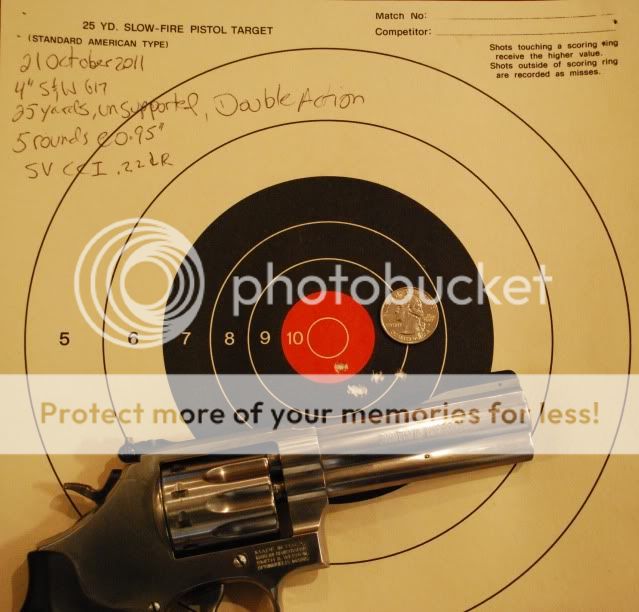If the gun was shooting 1" groups at 25 yards out of a machine rest, in order for you to out shoot it you'd have to shoot a smaller than 1" group while holding the gun. Why is this so hard to understand?
Because a shooter's skill level is independent of the gun being used. Just as the gun's inherent accuracy is independent of the shooter's skill.
Why should a particular gun define a shooter's skill level? If I can shoot 3" groups at 25 yards and I buy a gun that will only shoot 5" groups at 25 yards from a machine rest, I don't lose skill when I complete the purchase. Even when I'm holding that gun, I still have the same skill level, I just can't demonstrate it as easily
with that particular firearm.
You can't grade a gun based purely on the shooter's skill--a gun that shoots 1" groups at 50 yards doesn't magically become less accurate because it's in the hands of a person who has trouble keeping them all on the paper at 10 feet. The
gun itself is still capable of making 2MOA groups even though it's being shot by someone with no skill.
In the same way, you can't grade a shooter based on the accuracy of the gun. Max Michel Jr. doesn't suddenly become an amateur shooter with no skill just because someone hands him a rattletrap autopistol with a bore that's been shot until there's no more rifling in it. His shooting skills that allow him to shoot fast and accurately
are still there even when he's shooting a gun that is too inaccurate for him to be able to display that skill.
If Gun A shoots 1" groups at 25 yards out of a machine rest, then if the shooter can shoot groups smaller than 1" at 25 yards with Gun B which is much more accurate than Gun A, then the shooter can outshoot Gun A.
In fact, if a particular gun shoots 1" groups at 25 yards out of a machine rest, then if the shooter can shoot groups of less than 1.4" at 25 yards
using that gun, it is possible to demonstrate with mathematics that the shooter is capable of shooting groups smaller than 1" with a "theoretical" perfectly accurate gun. The shooter is contributing less error than the gun to the group size--or, said another way, the shooter is outshooting the gun.
Going back to my example with my 5" gun at 25 yards. If I can shoot groups
<with that gun> at 25 yards that are 7" or smaller, that's a demonstration that my contribution to the overall group size is smaller than the gun's. I would be outshooting the gun (contributing less error to the group size than the gun is) even though the overall groups are larger than what the gun is capable of by itself.


